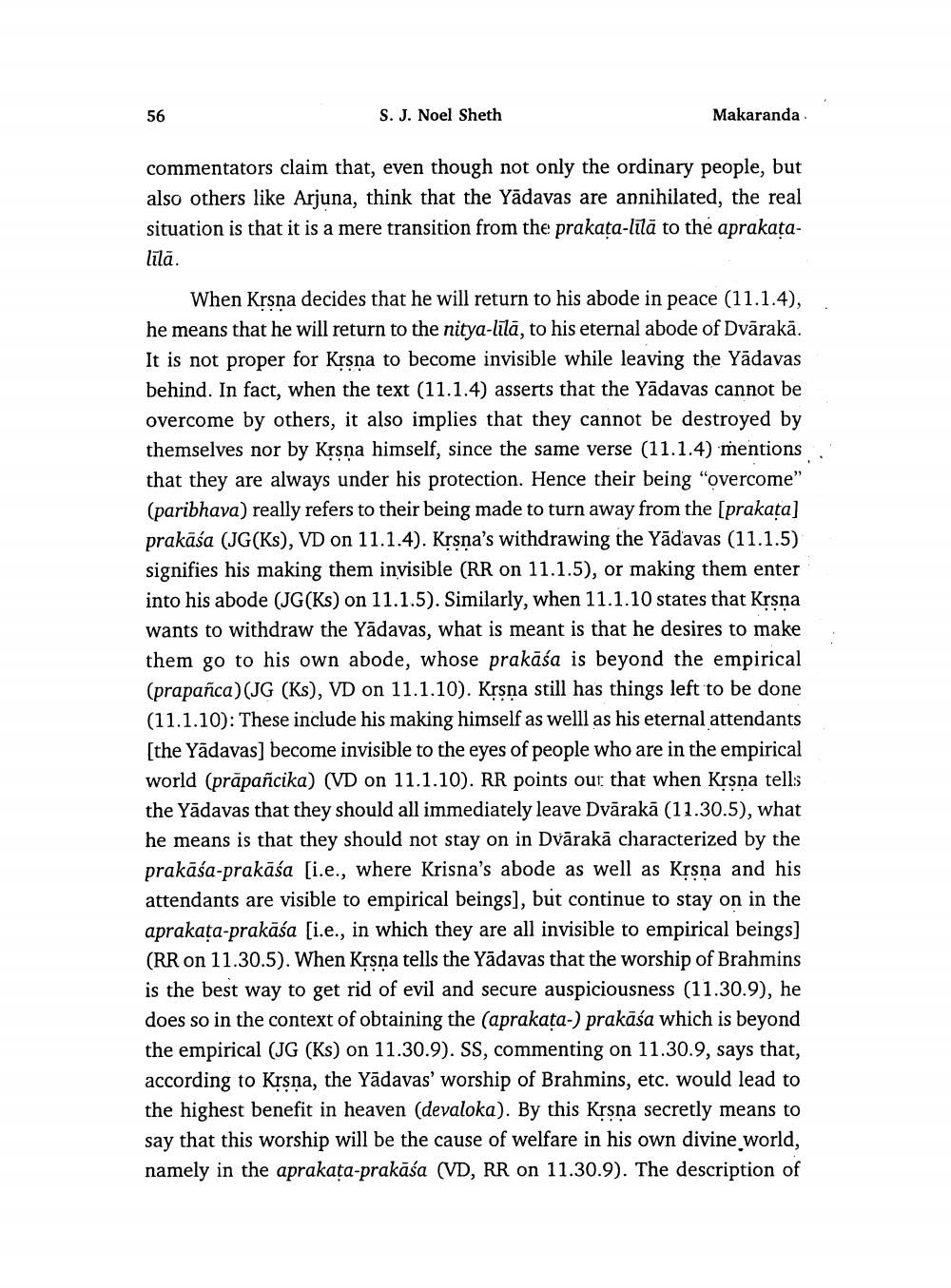________________
56
S. J. Noel Sheth
Makaranda
commentators claim that, even though not only the ordinary people, but also others like Arjuna, think that the Yādavas are annihilated, the real situation is that it is a mere transition from the prakata-līlā to the aprakatalīlā.
When Krsna decides that he will return to his abode in peace (11.1.4), he means that he will return to the nitya-lītā, to his eternal abode of Dvārakā. It is not proper for Krsna to become invisible while leaving the Yādavas behind. In fact, when the text (11.1.4) asserts that the Yādavas cannot be overcome by others, it also implies that they cannot be destroyed by themselves nor by Krsna himself, since the same verse (11.1.4) mentions that they are always under his protection. Hence their being “overcome” (paribhava) really refers to their being made to turn away from the (prakata] prakāśa (JG(Ks), VD on 11.1.4). Krsna's withdrawing the Yādavas (11.1.5) signifies his making them invisible (RR on 11.1.5), or making them enter into his abode (JG(Ks) on 11.1.5). Similarly, when 11.1.10 states that Krsna wants to withdraw the Yādavas, what is meant is that he desires to make them go to his own abode, whose prakāśa is beyond the empirical (prapanca)(JG (Ks), VD on 11.1.10). Krsna still has things left to be done (11.1.10): These include his making himself as welll as his eternal attendants [the Yādavas) become invisible to the eyes of people who are in the empirical world (prāpañcika) (VD on 11.1.10). RR points out that when Krsna tells the Yādavas that they should all immediately leave Dvārakā (11.30.5), what he means is that they should not stay on in Dvārakā characterized by the prakāśa-prakāśa [i.e., where Krisna's abode as well as Krsna and his attendants are visible to empirical beings], but continue to stay on in the aprakața-prakāśa [i.e., in which they are all invisible to empirical beings) (RR on 11.30.5). When Krsna tells the Yādavas that the worship of Brahmins is the best way to get rid of evil and secure auspiciousness (11.30.9), he does so in the context of obtaining the (aprakața-) prakāśa which is beyond the empirical (JG (Ks) on 11.30.9). SS, commenting on 11.30.9, says that, according to Krsna, the Yādavas' worship of Brahmins, etc. would lead to the highest benefit in heaven (devaloka). By this Krsna secretly means to say that this worship will be the cause of welfare in his own divine world, namely in the aprakața-prakāśa (VD, RR on 11.30.9). The description of




